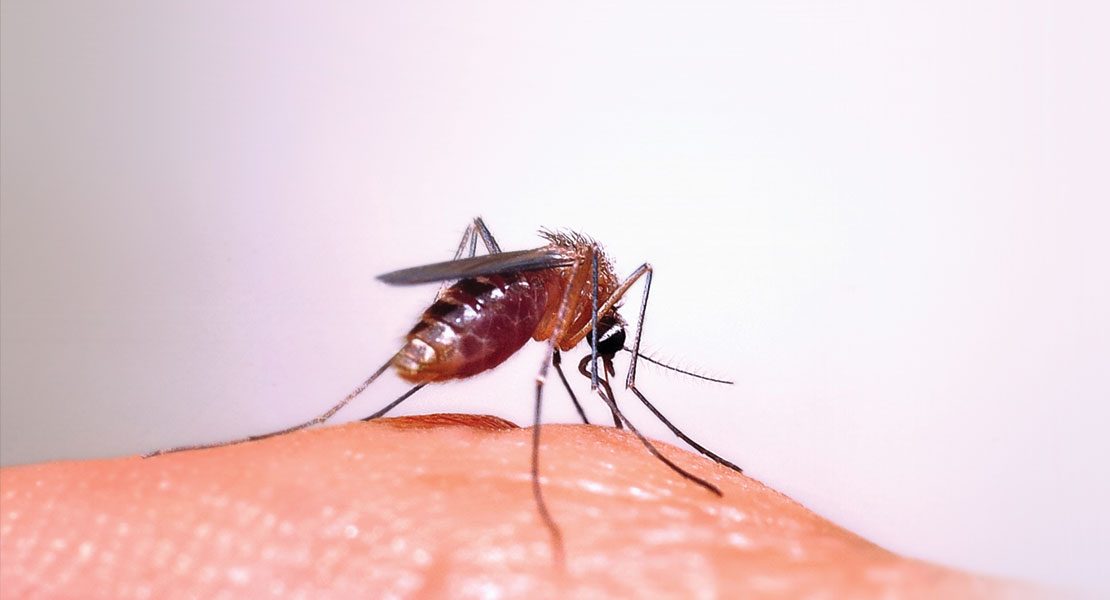Everything You Need to Know About the Zika Virus

Ever since the first headline of a rapidly spreading virus hit news channels and Twitter feeds, all we’ve been worried about is Zika – especially with mosquito season right around the corner. We chatted with Dr. Jeffrey Jahre, Chief of Infectious Disease and the Senior Vice-President of Medical and Academic Affairs at St. Luke’s University Health Network, to learn the facts, protective measures we can take, and just how concerned we should be.
What is the Zika virus?
The Zika virus is an arbovirus, or arthropod-borne virus, which means it is transmitted by insects – primarily mosquitoes.
Can the virus be transmitted by any means other than by a mosquito?
Yes. The virus can be transmitted sexually between partners. So far, we have only seen documented cases of men transmitting the virus to their partners. It is also very likely that it can be transmitted by blood, but there have not yet been any confirmed blood transfusion transmission cases in the United States.
When and where did it originate?
It can be traced back to first appearing in Uganda in 1947, and there weren’t any human cases until several years after that. For around 50 years, it was primarily confined to a narrow belt in Africa. It didn’t leave that area until 2013, when it was found in French Polynesia.
If the virus has been around for so long, why are we only paying attention to it now?
Zika is a geographic disease that was outside of our general sphere. The big impact came in May 2015, when the virus was first found in humans in Brazil. All of a sudden, we were talking about a country that has over 200 million people in it – from there, it spread rapidly in our hemisphere.
How do you know if you’ve been infected? Is there a test?
Yes. You can take a blood test.
The symptoms of the Zika virus resemble several other diseases, and are usually not the type of symptoms that will land you in a hospital.
How long does the Zika virus stay in your system?
Research indicates that the virus lasts longer in certain tissues such as seminal fluid. Males who had definite or suspected Zika are advised to use birth control methods for 6 months. It is also advised that all individuals who have traveled to areas with active mosquito-borne transmission of Zika – even if they don’t have symptoms – use birth control methods for 8 weeks.
What are the symptoms and effects?
Four out of 5 people with the Zika virus won’t even know that they have it. The symptoms of the Zika virus resemble several other diseases, and are usually not the type of symptoms that will land you in a hospital. If you do show symptoms, they’re going to be relatively mild: fever, rash, muscle aches, and bloodshot eyes.
In rare cases, there has been a link to Guillain-Barré syndrome – an uncommon sickness of the nervous system in which a person’s own immune system damages the nerve cells, causing muscle weakness, and sometimes, paralysis – and encephalomyelitis, which is similar to multiple sclerosis.
What happens to pregnant women who are infected?
In about 1 out of 100 pregnancies (of women who are infected with the Zika virus), microcephaly has been observed. Microcephaly is a rare and incurable severe birth defect in which a baby’s head is significantly smaller than expected, which causes the baby to develop mental disabilities and abnormalities. Other problems have been detected among fetuses and infants infected with the virus before birth, such as defects of the eye, hearing deficits, and impaired growth. Zika may also have effects that aren’t readily apparent in a newborn, but might appear later that are unknown at this time.
What role does global warming play with viruses like Zika?
Diseases that would be normally be confined to the tropics because of factors that favor hot, moist climates might end up leaving these geographical zones as those climates expand.
Are we going to see a local outbreak of Zika?
The prediction is that this lack of domestic transference is not going to last. We are entering mosquito season, and the range of these mosquitoes has increased. We’re going to see many more people returning from abroad with Zika, and the overwhelming likelihood is that the “right” mosquito will bite the “right” person who has the virus and end up transmitting it to someone else within the United States. However, we have better mosquito control and a wider use of screens, windows, and air conditioning than countries like Brazil, not to mention a winter season. We are unlikely to see the same ongoing spread that other countries are facing.
How can people avoid the virus and avoid spreading the virus?
The Centers for Disease Control and Prevention (CDC) has a map of established countries with the Zika virus. If you are pregnant or planning on becoming pregnant, avoid those areas. If you must go, or if you are of child-bearing age – remember that 50 percent of pregnancies are all unplanned – it’s very important that you use EPA-registered mosquito repellant and at least one form of birth control. When you return home, wear mosquito repellant for three weeks because you may be at risk of being a potential vector if you are carrying the virus.
The mosquitos that spread Zika are primarily day-biting mosquitos, and they tend to bread in areas with stagnant water. Do not leave tires or similar objects out in the yard that can collect rainwater and serve as breeding pools, and avoid bodies of still water.
How long until a vaccine will be available?
Not for a year and a half or longer. While it’s likely that a vaccine will be in trial by the end of the year, we will still need at least one more year to discover if the vaccine is effective before it would be promulgated for widespread use.












